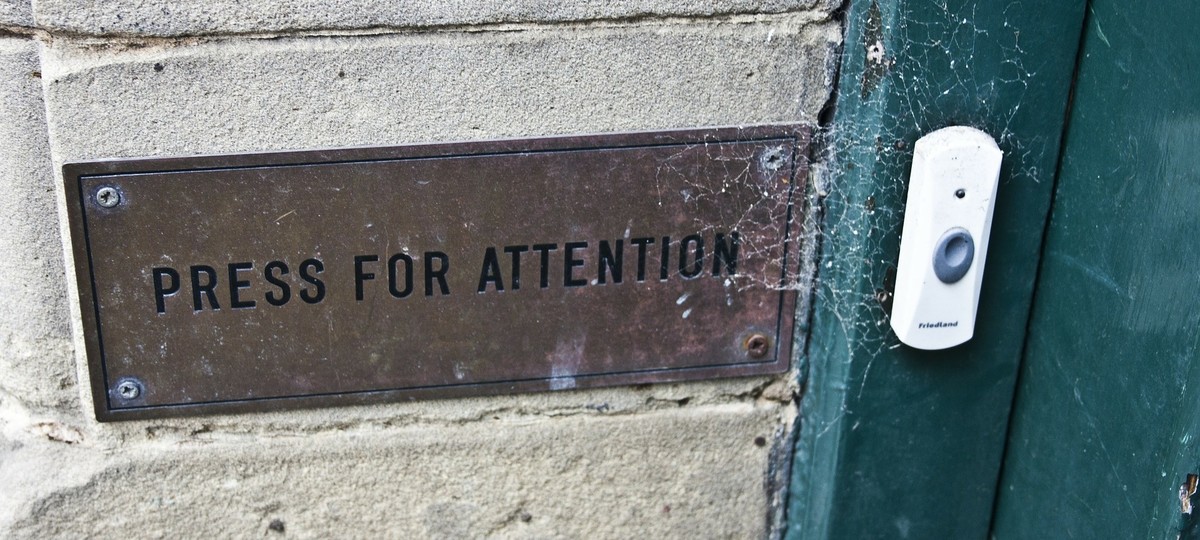
The goal is obvious: fear, fear, fear, fear, fear. Not only will you be grateful for your doorbell-cum-security detail (or hurry up and buy one), you also might no longer want to go outside, because now it seems so terrifying. Instead, you'll want everything delivered straight to your bunker ... er ... home.
Hmmm. Is there a company that delivers everything to your doorstep negating the idea of community?
"Home security like never before" is how Amazon describes its product. The promotional video features stocking-capped young men (different races — collect all 24!) casing a house and a happy blonde lady in her driveway, radiant in the knowledge she is not about to be clobbered. The video also shows two school-age kids coming through the door while Mom is out, joyful as puppies, and monitored as closely as maximum-security prisoners.
Josh Benton in The Atlantic has written an engrossing piece on doorbell dystopia, including a deep dive into why the majority of people believe crime is going up though it has been going down for decades.
As he points out, what Amazon is doing by hiring a crime editor is not gathering information, in the traditional news sense. Amazon is not trying to frame the world in any kind of robust, meaningful way.
In fact, "A company that sells security-optimized doorbells has only one incentive: emphasizing that the world is a scary place, and you need to buy our products to protect you."
Benton continues that, judging by its marketing, Amazon "encourages people living in bucolic suburbs with wrought iron gates to feel as if they're in the last un-zombified neighborhood in 'The Walking Dead.'"
But in truth, the more you believe in your community, the safer it becomes. You go out, you send your kids out, everyone gets to know each other, and the streets teem with life — human eyes rather than Amazon's on the street, protecting everyone on it.
When Benton used the neighborhood update app, Ring alerted him that a lawn care guy had knocked on someone's door (terrifying!), a fire had happened two towns away (so relevant!) and two people in matching T-shirts with clipboards had been wandering the neighborhood (clearly nefarious).
Regarding those clipboard carriers, one app user asked if anyone knew them — "perhaps concerned about Islamic State infiltration of the Boston suburbs," writes Benton.
"Call the police," a commenter replied.
Note to Amazon if you're listening (and I'm pretty sure they are): Streaming stranger danger and a "Call the cops!" mentality into the collective bloodstream is not a new kind of neighborliness. It's a new level of lockdown, as calming as "Hit the floor!"


 Contact The Editor
Contact The Editor
 Articles By This Author
Articles By This Author